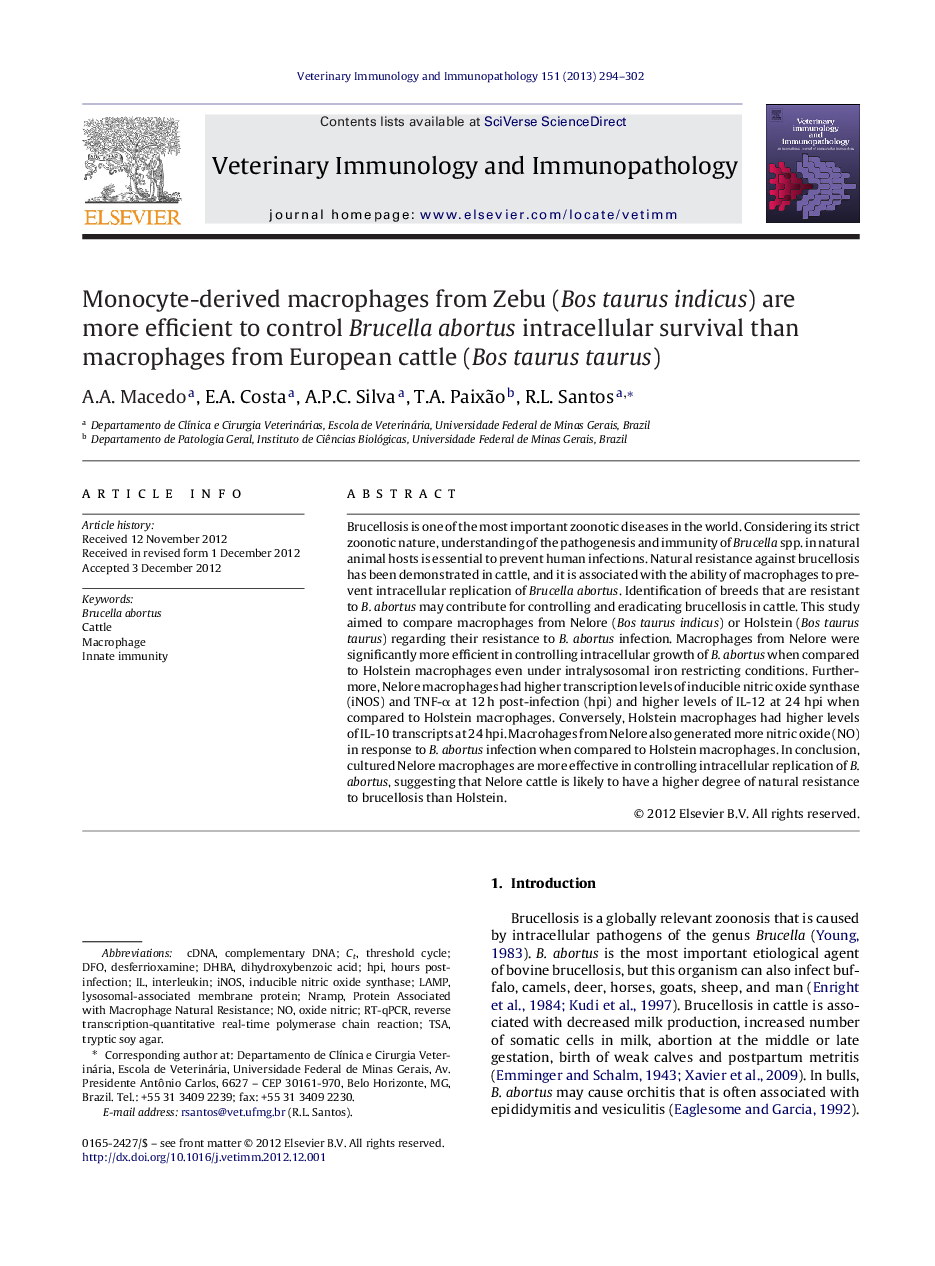| Article ID | Journal | Published Year | Pages | File Type |
|---|---|---|---|---|
| 2461612 | Veterinary Immunology and Immunopathology | 2013 | 9 Pages |
Brucellosis is one of the most important zoonotic diseases in the world. Considering its strict zoonotic nature, understanding of the pathogenesis and immunity of Brucella spp. in natural animal hosts is essential to prevent human infections. Natural resistance against brucellosis has been demonstrated in cattle, and it is associated with the ability of macrophages to prevent intracellular replication of Brucella abortus. Identification of breeds that are resistant to B. abortus may contribute for controlling and eradicating brucellosis in cattle. This study aimed to compare macrophages from Nelore (Bos taurus indicus) or Holstein (Bos taurus taurus) regarding their resistance to B. abortus infection. Macrophages from Nelore were significantly more efficient in controlling intracellular growth of B. abortus when compared to Holstein macrophages even under intralysosomal iron restricting conditions. Furthermore, Nelore macrophages had higher transcription levels of inducible nitric oxide synthase (iNOS) and TNF-α at 12 h post-infection (hpi) and higher levels of IL-12 at 24 hpi when compared to Holstein macrophages. Conversely, Holstein macrophages had higher levels of IL-10 transcripts at 24 hpi. Macrohages from Nelore also generated more nitric oxide (NO) in response to B. abortus infection when compared to Holstein macrophages. In conclusion, cultured Nelore macrophages are more effective in controlling intracellular replication of B. abortus, suggesting that Nelore cattle is likely to have a higher degree of natural resistance to brucellosis than Holstein.
